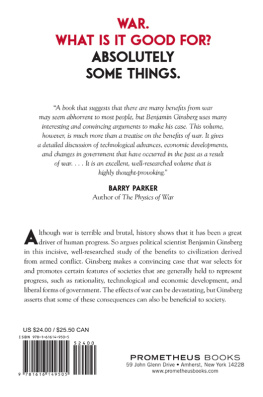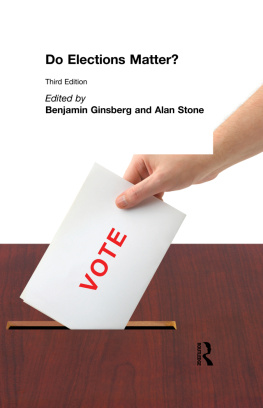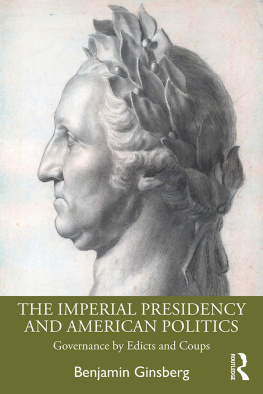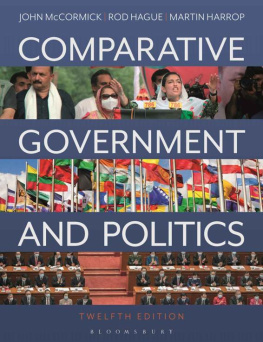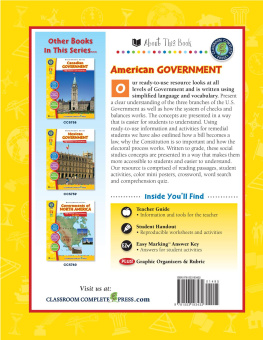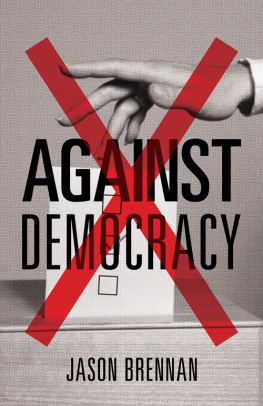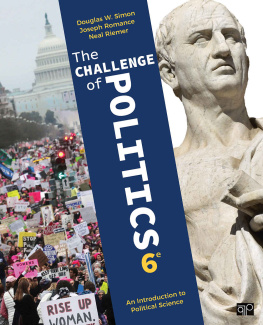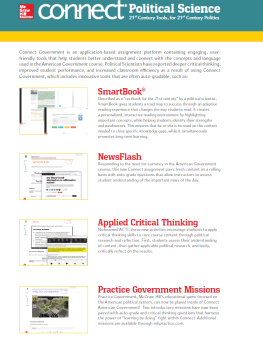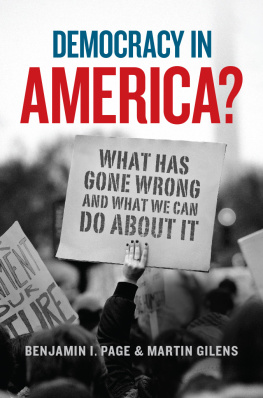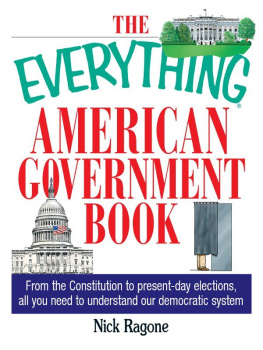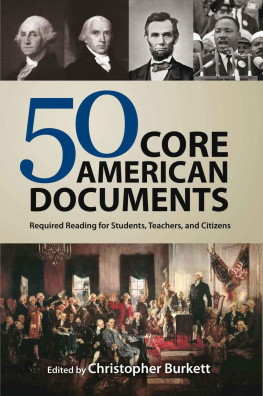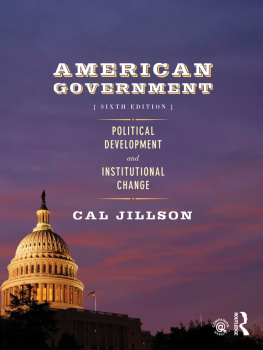Publishers Notice
Please note that this version of the ebook does not include access to any media or print supplements that are sold packaged with the printed book.
W. W. Norton & Company has been independent since its founding in 1923, when William Warder Norton and Mary D. Herter Norton first published lectures delivered at the Peoples Institute, the adult education division of New York Citys Cooper Union. The firm soon expanded its program beyond the Institute, publishing books by celebrated academics from America and abroad. By midcentury, the two major pillars of Nortons publishing programtrade books and college textswere firmly established. In the 1950s, the Norton family transferred control of the company to its employees, and todaywith a staff of five hundred and hundreds of trade, college, and professional titles published each yearW. W. Norton & Company stands as the largest and oldest publishing house owned wholly by its employees.
Copyright 2021, 2019, 2017, 2015, 2013, 2011, 2009, 2007, 2005, 2003, 2001, 1999, 1997 by W. W. Norton & Company, Inc.
All rights reserved
Editor: Peter Lesser
Project Editor: Laura Dragonette
Associate Editor: Anna Olcott
Developmental Editor: John Elliott
Manuscript Editor: Sarah Johnson
Managing Editor, College: Marian Johnson
Managing Editor, College Digital Media: Kim Yi
Production Manager, College: Elizabeth Marotta
Media Editor: Spencer Richardson-Jones
Media Editorial Assistant: Lena Nowak-Laird
Media Project Editor: Marcus Van Harpen
Ebook Production Manager: Sophia Purut
Marketing Manager, Political Science: Ashley Sherwood
Art Director: Lissi Sigillo
Text Design: Jen Montgomery
Photo Editor: Thomas Persano
Photo Researcher: Donna Ranieri
Director of College Permissions: Megan Schindel
Permissions Consultant: Elizabeth Trammell
Information Graphics: Kiss Me Im Polish LLC, New York
Composition: Graphic World, Inc.
Cover design and Illustration: Ben Wiseman
Permission to use copyrighted material is included in the credits section of this book, which begins on .
The Library of Congress has cataloged the printed edition as follows:
Names: Ginsberg, Benjamin, author. | Lowi, Theodore J., author. | Weir, Margaret, author. | Tolbert, Caroline J., author. | Campbell, Andrea Louise, 1966- author.
Title: We the people : an introduction to American politics / Benjamin Ginsberg, The Johns Hopkins University, Theodore J. Lowi, late of Cornell University, Margaret Weir, Brown University, Caroline J. Tolbert, University of Iowa, Andrea L. Campbell, Massachusetts Insitute of Technology.
Description: Thirteenth edition. | New York : W.W. Norton & Company, [2021] | Includes bibliographical references and index.
Identifiers: LCCN 2020051064 | ISBN 9780393427035 (hardcover)
Subjects: LCSH: United States--Politics and government--Textbooks.
Classification: LCC JK276 .G55 2021 | DDC 320.473--dc23
LC record available at https://lccn.loc.gov/2020051064
ISBN: 978-0-393-53839-7 (ebook)
W. W. Norton & Company, Inc., 500 Fifth Avenue, New York, N.Y. 10110
www.wwnorton.com
W. W. Norton & Company Ltd., 15 Carlisle Street, London W1D 3BS
To:
Sandy, Cindy, and Alex Ginsberg
David, Jackie, Eveline, and Ed Dowling
Dave, Marcella, Logan, and Kennah Campbell
Contents
- PART I FOUNDATIONS
- PART II POLITICS
- PART III INSTITUTIONS
- PART IV POLICY
Preface
The coronavirus pandemic and the racial injustice protests raging across the nation vividly display the relevance of government to the lives of ordinary Americanseven to those normally absorbed by school, work, and family. These profound events also reaffirm the commitment of this book to exploring the fundamental democratic question: Why should we be engaged with government and politics? Through the first 12 editions, we sought to answer this question by making the text directly relevant to the lives of the students who would be reading it. We tried to make politics interesting by demonstrating that students concerns are at stake and that they therefore need to take a personal, even selfish, interest in the outcomes of government. With many students newly attentive and energized, we realize that they need guidance in how to become politically engaged. Beyond providing students with a core of political knowledge, we show them how they can apply that knowledge as participants in the political process. The (NEW) How-To sections in help achieve that goal.
As events from the past several years have reminded us, what government does inevitably raises questions about political participation and political equality. The size and composition of the electorate, for example, affect who is elected to public office and what policy directions the government will pursue. Challenges to election administration, from the reliability of voting machines, to the ability of local officials to handle the many complications of running a voting operation during a global pandemic, became important in the 2020 election. Many questions arose about the integrity of the voting process, from fears of foreign attacks to concerns that there was not enough mail-in votingor too much. Fierce debates about the policies of the Trump administration have heightened students interest in politics. Other recent events have underscored how Americans from different backgrounds experience politics. Arguments about immigration became contentious as the nation once again debated the question of who is entitled to be an American and have a voice in determining what the government does. Debates about who benefited from pandemic relief legislationand who slipped through the cracksraised questions about which interests have effective voices in government policy. And charges that the police often use excessive violence against members of minority groups have raised questions about whether the government treats all Americans equally. Reflecting all of these trends, this new Thirteenth Edition shows more than any other book on the market (1) how students are connected to government, (2) why students should think critically about government and politics, and (3) how Americans from different backgrounds experience and shape politics.
To help us explore these themes, Professor Andrea Campbell has joined us as the most recent in a group of distinguished coauthors. Professor Campbells scholarly work focuses on the ways in which government and politics affect the lives of ordinary citizens. Among her contributions are new chapter introductions that focus on stories of individuals and how government has affected them. Many Americans, particularly the young, can have difficulty seeing the role of government in their everyday lives. Indeed, thats a chief explanation of low voter participation among younger citizens. The new chapter openers profile various individuals and illustrate their interactions with government, from college students organizing a march against racial injustice in their hometown and attracting 15,000 people (). Several chapters highlight the racial injustice protests following the killing of George Floyd in May 2020, and many show how the pandemic affects ordinary Americans and their interactions with government.



